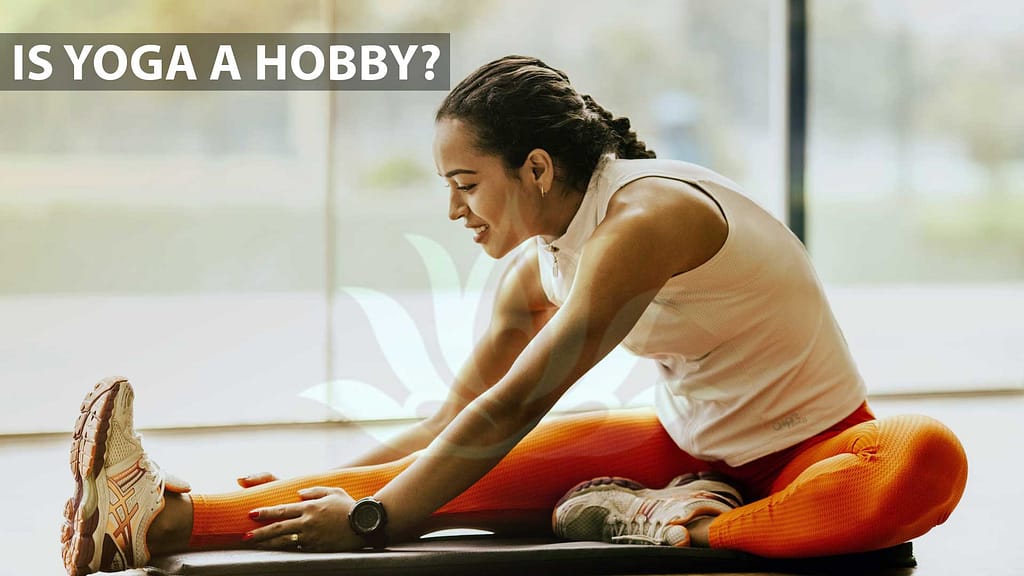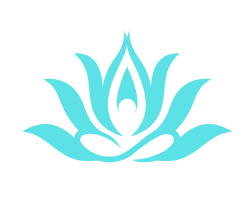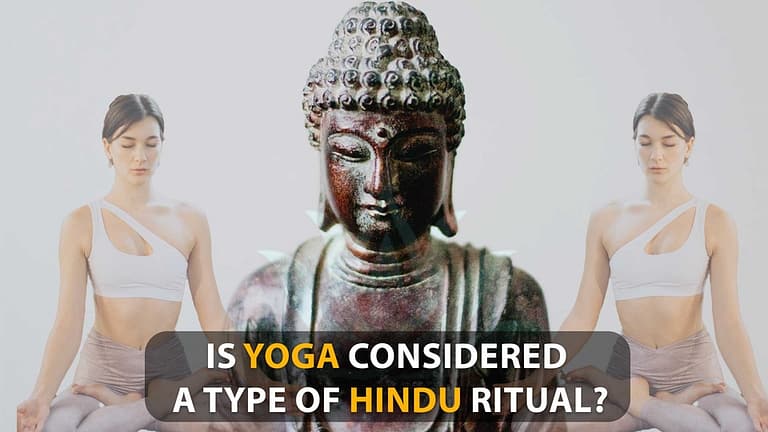Is Yoga A Hobby? – facts and benefits in 2024

Is yoga a Hobby or not?
If you like yoga and practice it often, you can definitely call it a hobby. Some people will keep yoga as a healthy hobby; for others, it can begin as a hobby and become a way of life over time. Yoga means something different to everyone.
However, for many people, yoga goes beyond being just a hobby. It becomes a way of life, encompassing physical, mental, and spiritual aspects. Yoga philosophy promotes mindfulness, self-awareness, and the integration of mind, body, and spirit.
Why is yoga a hobby?
Yoga practitioners have been discussing this issue for ages. Some believe that yoga practice is a hobby, something you do for leisure or to chill. Yoga is a recreational activity and fantastic option if you’re feeling stressed or need a way to relax.
You will gain double benefits from practicing mindfulness if you are ready to think about the possibility of being more sensitive to the environment around you.
People have different views
Yoga may help you find your unique refuge and can improve the way you see the world and yourself. You’ll learn to enjoy how your new activity makes you feel, both physically and mentally, very soon.
While some people perceive Yoga as a way of life, an ideology that should guide every area of your reality. Which is it, then? Yoga—is it a hobby or a way of life?
Considering Yoga as a hobby or not. First, we will take a look at…
Read:
Fallen Star Yoga Pose: How To Do And Contraindications In 2023
What Is a Hobby and can yoga be a hobby?
A hobby is anything you do for enjoyment or recreation, usually not for financial benefit. It could be gathering certain things, indulging in artistic endeavors, music or game playing, participating in sports, or following other interests like reading, writing, or crafts.
People’s interests can differ widely; some may only have one interest, while others may have many. In their spare time, people frequently engage in hobbies to produce something, pick up new skills, or chill.
How do you describe yoga as a hobby?

Back to the main topic, there is huge confusion about whether “is yoga a hobby or not?”
The majority say that Yoga can be a pastime because Yoga truly improves your ability to calm and connect with yourself.
You enjoy how it enables you to connect with your body and concentrate on breathing. It’s a fantastic method for letting go of whatever worry or anxiety you are experiencing and simply being alive.
It is among the healthiest and most useful hobbies you may include. It has several advantages for your mental and physical health that greatly enhance your quality of life.
Who Practices Yoga, and Why?
Even while yoga has universal appeal, specific populations stand to benefit more than others from regular practice.
- Many persons with mental health issues, such as depression or anxiety, or who lead stressful lifestyles, such as those in the working world, credit yoga with saving their sanity. They find that yoga gives them peace and concentration that aids in problem-solving and problem-prevention.
- Some couples find that doing yoga together helps them become closer to one another and strengthens their bonds.
- Pregnant women sometimes turn to yoga, practiced under the watchful eye of a teacher, for respite from the tension and physical stress of their condition.
- Yoga is popular among athletes because it increases flexibility, stamina, and strength.
- Yoga is popular among health-conscious people who value physical fitness and want to reduce mental stress.
Read
Yin Yoga Dragon Pose: How To Do Step By Step In 2023
How Does Yoga Actually Help?

There are several benefits of Yoga being adopted as a hobby. From which some major we are explaining here:
1. Improves Attitude And Energy Levels
After participating in a yoga session, many people claim that they feel refreshed mentally and physically. Therefore, the next time you are depressed, get out of your yoga mat and bid farewell to the gloom and doom.
2. Boosts Heart Health
Yoga practice lowers stress levels and body-wide damage, resulting in a much healthier heart. Additionally, having control over your breathing will benefit your heart rate, arterial pressure, cardiovascular capacity, and the smooth muscle contraction of the heart.
3. Yoga Is Not Expensive
Yoga Is A Very Cheap Interest. Don’t let your real worry that yoga practice will be too expensive discourage you. You can practice Yoga without joining a gym or studio, and you only need a comfortable outfit that can be used for the sessions.
Yoga can be practiced in the mid of your living room while wearing gym shorts and no shoes. You don’t require the pricey gym membership or the designer yoga pants you see in the media. Yoga may be free with your mind, body, and willpower.
4. It Can Aid In The Treatment Of Arthritic Symptoms
Yoga is very helpful in lowering the pain and suffering brought on by arthritis symptoms, such as swollen and painful joints.
5. You Can Use It To Calm Down And Have A Better Night’s Sleep
Yoga is helpful to calm down and relax your mind so you can get a good night’s sleep.
6. Social Assistance
Joining a yoga class might help you feel less lonely and connect with like-minded people. If you don’t get out often, taking a yoga class allows you to interact and get to know new people. It also presents a wonderful opportunity for group support and healing.
7. You Can Put Yoga On Your Resume.
Yoga is popular these days, and if you put It on your resume, it will be very impressive, and it will show that the resume person is very calm and has self-control.
8. how to write yoga as hobby in resume
- Structure of a Yoga Teacher CV
- Contact Details.
- Outline of oneself.
- Experience at work.
- Qualifications and licenses related to the profession.
- Schooling.
- Likes and dislikes.
- References.
9. Yoga can practiced anywhere
Yoga can be practiced in the middle of your living room while wearing gym shorts and no shoes. You don’t require the pricey gym membership or the designer yoga pants you see in the media. Yoga may be free with your mind, body, and willpower.
So we got the answer to our question Is Yoga a Hobby?
But the discussion needs to be summed up here, and there are other questions about Yoga being adopted as a hobby.
video Guide:
Does Yoga Have Any Negative Aspects?

Even if they aren’t as serious or upsetting, they should be considered before engaging in this practice. But there are some drawbacks of Yoga as a Hobby as well, like:
1. The Possibility Of Damage
Yoga has few negative effects, but it’s still necessary to remember that there is always a small chance of being hurt. This is especially true if you have severe pain due to a condition, accident, or other condition. First, speak with your doctor to understand whether Yoga is a healthy activity.
It could feel not very comforting at the first class. This is a relatively minor drawback, though, in light of the advantages you will enjoy after that.
2. Back Injury
Yoga is excellent for back strengthening, but if you perform particular postures too forcefully or passionately before you have developed the necessary back strength, it might lead to injury.
Vulnerable discs in your back, particularly those in the lumbar spine, are susceptible to damage or irritation.
Yoga positions such as the Standing Forward Bend (Uttanasana), Triangle (Trikonasana), Wheel (Urdhva Dhanurasana), Camel (Ustrasana), Warrior I (Virabhadrasana I), Cobra, and Half Lord of the Fishes Pose should all be performed cautiously to avoid back injuries.
3. Fatigue
Postures have a deeper impact on the body and mind. Yoga is a full-body activity, and since courses last an hour to an hour and a half, they can be very difficult. Exhaustion can appear as tiredness, a weak emotion, headache, and nausea.
4. Incorrect Methods Instructed By The Inexperienced Instructor
When you learn Yoga from someone who doesn’t understand the philosophy behind it, isn’t knowledgeable about all of the poses, and isn’t aware of how to adapt some positions to assist the group more effectively, you face the risk of getting harmed or not getting the full benefits of Yoga.
What Yoga Techniques Should We Take Up as a Hobby?

Your tastes, health objectives, and general curiosity will all play a role in ascertaining the kind of yoga you practice for fun. Some standard yoga practices are as follows:
1. Hatha Yoga
Hatha Yoga is a slower and more relaxed form of yoga that emphasizes fundamental asanas (postures), pranayama (breathing practices), and relaxation. Hatha yoga is perfect for individuals new to the practice or those seeking a more mellow and contemplative style of yoga.
2. Vinyasa Yoga
Vinyasa Yoga, sometimes called “flow yoga,” is characterized by its emphasis on synchronizing one’s breath with one’s movement. It typically consists of a continuous sequence of postures. Vinyasa yoga may be strenuous on the body, but the benefits are worth it.
3. Ashtanga Yoga
Ashtanga Yoga is a more dynamic and organized style of yoga. It is practiced in a set order of postures, emphasizing breathing in unison and building internal heat. Ashtanga is a vigorous and athletic style of yoga that challenges the practitioner physically.
4. Iyengar Yoga
Iyengar is a type of Hatha that emphasizes perfect alignment and extensively uses yoga props, including blocks, straps, and bolsters. Practicing Iyengar yoga may increase one’s stamina, mobility, and self-awareness. It’s easy for people of all skill levels and has therapeutic potential for some ailments.
5. Bikram Yoga
Bikram is practiced in a hot room with 26 postures and two breathing exercises. The temperature enhances flexibility and detoxification. Those who want a strenuous physical challenge in a heated room will benefit most from Bikram yoga.
6. Yin Yoga
Yin yoga involves holding passive positions for prolonged periods to reach the deeper connective tissues and fascia. It encourages letting go of inhibitions and stress in favor of more fluid movement and the discharge of built-up tension. Yin yoga is a gentle and reflective practice that may be adapted to any fitness level.
7. Restorative Yoga
With props, practitioners of Restorative Yoga may ease into restful positions that promote physical and mental rejuvenation. Relaxation and stress reduction are two more benefits you may get from practicing restorative yoga.
These are only a few of the many possible yoga practices. Finding the teaching method and teacher that best speaks to you requires experimentation. In addition, before beginning a new practice, think about your current level of fitness and health, and if necessary, talk to a yoga teacher or doctor.
Read:
Can Beginners Do Ashtanga Yoga? Complete Guide In 2023
Tips for adopting yoga as a hobby

Practicing yoga as a leisure can be gratifying and advantageous. Here are some tips about it:
1. Starting with Beginner
Starting with Beginner Courses If you’re new to yoga, beginner classes are an excellent way to learn the foundational poses, proper alignment, and fundamental breathing techniques. This will help you establish a secure foundation for your yoga practice.
2. Select a Competent Instructor
Select a Competent Instructor Seek certified, experienced yoga instructors who can direct your practice. Based on your requirements and abilities, they can provide the appropriate direction, modifications, and adjustments.
3. Develop a Consistent Implementation
When it comes to yoga, consistency is essential. Set aside a specific time each week for yoga practice. Start with shorter sessions, such as 20 to 30 minutes, and progressively lengthen them as you gain comfort.
4. Please pay attention to what your body needs
Yoga is about connecting with your body and recognizing its limitations. Pay attention to how you feel throughout the practice and modify or omit poses that do not feel comfortable. Be patient and avoid pressing yourself too hard at the outset, especially.
5. Learn about different yoga styles
As stated previously, there are a variety of yoga styles to investigate. Examine various techniques and programs to determine what most resonates with you. This will help you discover a style corresponding to your inclinations and objectives and keep your practice current.
6. Build an Inviting Space
Designate a room in your residence for yoga practice. Gather any necessary implements or equipment, such as a yoga mat, blocks, or straps, and eliminate potential distractions.
7. Incorporate Mindfulness into Yoga
Yoga is more than just physical movement; it also incorporates mindfulness and meditation. To increase your practice’s mental and emotional benefits, incorporate mindfulness techniques such as deep breathing, meditation, or visualization.
8. Join a Yoga Association
Consider joining a yoga studio, attending seminars, or joining online communities to interact with other yoga enthusiasts. Sharing your experiences, asking for advice, and attending group classes can increase your motivation and sense of belonging.
9. Educate Yourself
Read books, watch instructional videos, and research online resources to broaden your understanding of yoga philosophy, anatomy, and various facets of the practice. This information can enrich your yoga experience and broaden your perspective.
10. Have Fun and Practice Patience
Yoga is a lifelong journey, and it is essential to approach it with awe, joy, and self-compassion. As you navigate your yoga, practice, enjoy the voyage, recognize your progress, and be patient.
Is yoga a hobby or a sport?
A hobby is a good pastime pursued frequently. Yoga is a pastime if you practice it often. Yoga may be a pastime or a lifestyle. It’s not a sport since it’s not competitive and goes beyond physical positions.
yoga as a recreational activity
Yoga combines moving your body, taking deep breaths, and meditating. Yoga brings the mind and body together in a way that works well.
Yoga can be a constructive way for kids and adults to spend their free time. As a leisure treatment, yoga can help you relax, become more flexible, focus, and get more air into your lungs.
Close Words
After reading about the drawbacks of “is yoga a hobby?”. You may find yourself in a state of confusion. Still, there is no need to be worried about it because the truth is that there are plentiful benefits of Yoga as compared to its disadvantages.
So that it can be a fruitful and healthy hobby with the strengthening of mind and calmness of soul, but remember when you decide to practice Yoga, choose it wisely and under the guidance of an experienced instructor.
FAQ’s about yoga as a hobby
Q. Can I still do yoga if I’m expecting?
Improved strength, flexibility, and relaxation are just a few benefits pregnant women can experience from participating in prenatal yoga courses tailored to their unique needs.
Attending prenatal yoga courses taught by trained professionals specializing in caring for expectant mothers is highly recommended. It’s also smart to check in with your doctor before beginning or maintaining a fitness program while you’re expecting.
Q. How long before you feel yoga’s positive effects?
Some of yoga’s benefits, including feeling calmer and more focused, can be experienced immediately. However, it may take several weeks or months of dedicated practice before you see improvements in your strength, flexibility, and balance. Keep in mind that yoga is a practice with cumulative advantages over time.
Q. Can I perform yoga even if my health or body doesn’t let me?
Yoga could be changed to work with different health problems or physical limits. It’s important to tell your yoga teacher about any injuries, conditions, or limits you may have.
This way, they can make the necessary changes to keep you safe during the practice. You should also talk to a medical professional if you have specific health issues.
Q. Does yoga require me to be flexible?
No, you don’t need to be flexible to do yoga. Flexibility is a benefit that comes from doing something over and over again. No matter where you start, yoga helps you become more flexible, stronger, and balanced.
Q. How do I dress for yoga?
Wear soft clothes and let you move around a lot. Choose breathable and stretchy clothes, like yoga pants or leggings, and a top that fits well or is open. Try not to wear anything too loose or baggy that might get in the way of your poses.
Q. Can yoga become a way of life?
Yoga is body, mind, and spirit, not just asanas. It’s a scientific approach to fitness and mental peace. It teaches you what, how, when, and what not to consume.
Also Read
- How To Clean A Lululemon Yoga Mat? – 5 Benefits Of Cleaning Lululemon Yoga Mat
- What Size Yoga Mat Do I Need? – 8 Important Factors For choosing Yoga Mat In 2023
- Meditation Before Or After Yoga – Suggestions For Improving Meditation In 2023
- Is Fat Guy Doing Yoga? Easy Yoga Poses for Obesity In 2023
- Is Yoga Meant To Worship Gods? – Why Yoga Is Misunderstood As Worship? In 2023
- Ashtanga Vs Hatha Yoga – Which Form Of Yoga Is Best In 2023
- Which Direction Is Best For Meditation – Best Direction To Face For Benefits In 2023






